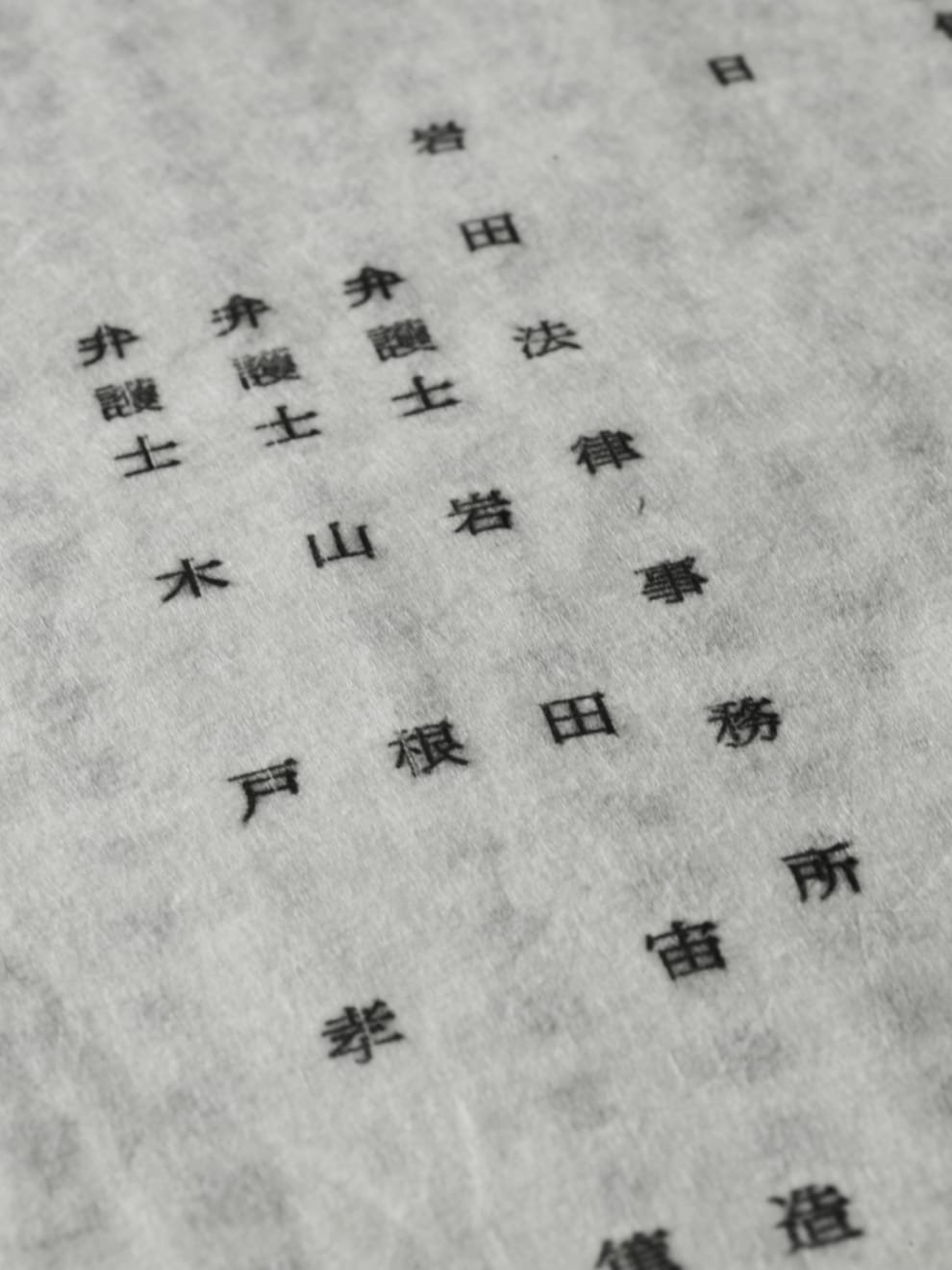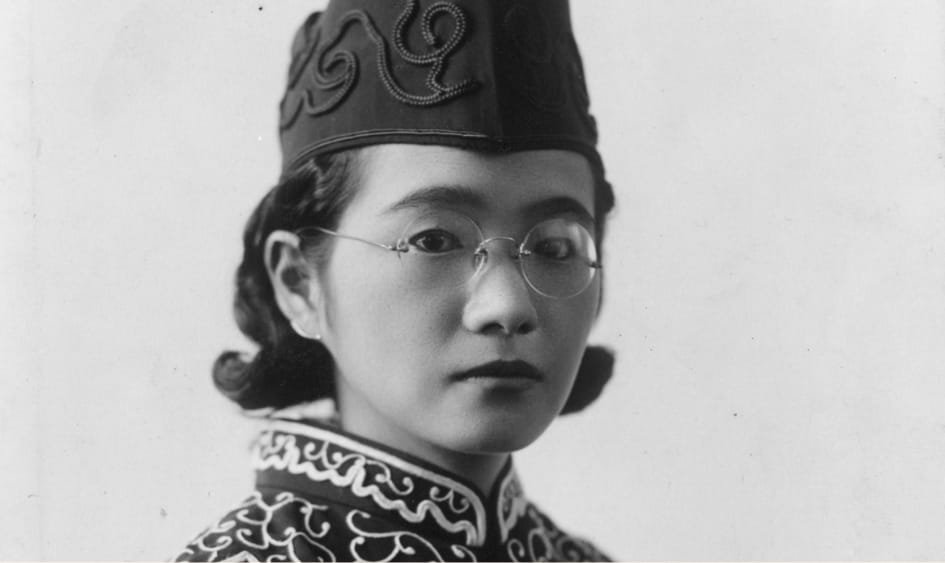Contribution to Judicial Precedents
From roughly 1926 to 1941, when the Pacific War broke out, the Iwata Office expanded further along with the reputation of Dr. Iwata. During this period, Japan's politics, economy, and society were at a major turning point. With the outbreak of World War I (1914), the Showa Depression (1930), and the China Incident (1937), Japan gradually became militaristic.
Against such historical background, the Iwata Office litigated a large number of major cases, including many cases which resulted in setting judicial precedents in the Supreme Court. There was also a further increase in the number of legal opinions during this period, and copies of some of those opinions are still kept in our office. (1) Some of them made history in corporate legal services in Japan. In those days, many young attorneys joined the Iwata Office and received training and guidance from Dr. Iwata in person. Nakata Masako, (2) one of the first female attorneys in Japan, was one of those young attorneys. She joined the Iwata Office and worked energetically, providing women with legal advice.
It was during this period that the firm, in addition to many civil and commercial lawsuits, took responsibility for the settlement of all debts and credits of the Kuhara conglomerate, a corporate group which included Hitachi Mining. This conglomerate had fallen on hard times in the recession following World War I.
When Dr. Iwata was asked by the president of the Bank of Taiwan, which was under Japanese rule, whether continuing the business during the Showa Depression could constitute breach of trust, he advised the president, "It does not constitute a breach of trust as long as it is beneficial to the Bank of Taiwan to continue the business. If any problem happens, you can answer by saying that you have only followed the instructions from Iwata, the legal counsel." The president reportedly avoided confusion and breach of trust. (3)
In that way, the Iwata Office dealt with cases that were the herald of so-called crisis management cases in current corporate legal affairs, since the early Showa period.
At the same time as he was expanding his practice in corporate legal affairs, Dr. Iwata played a leading role in bar associations during this period. Together with other prominent attorneys with similar views on the role and mission of a bar association, he participated in the founding of the Dai-Ichi Tokyo Bar Association, separately from the existing Tokyo Bar Association, in 1923. Today, there are three bar associations in Tokyo. Even now, a bust of Dr. Iwata is on display in a conference room of the Dai-Ichi Tokyo Bar Association together wish the busts of other leading legal experts in the private sector at the time of its foundation.
Note 1: From 1922 to 1935, there were 2 to 5 Supreme Court judicial precedents per year, and at least roughly 60 legal opinions per year. Among them, there were well-known cases such as the Supreme Court judgment of February 21, 1940 (exercise of the right of subrogation by a reinsurer and an original insurer), which appeared in Hanrei Hyakusen.
Note 2: In 1940, she became one of the first female attorneys in Japan, along with Ai Kume and Yoshiko Mibuchi, her fellow alumnae of Meiji University Women's College.
Note 3: Toshioki Date's Retrospective Talks with Harunosuke Iwata about the Master Attorney, page 242, Horitsu Shimbunsha, 1990.

Nakata Masako, one of Japan's first female lawyers, and her connection to Iwata Godo

Nakata Masako, one of Japan's first female lawyers, passed the bar exam in 1938 and worked for the Iwata Chuzo Law Office, the predecessor of our
firm, for several years from her time as a probationary lawyer until she evacuated to Tottori in 1945. After evacuating to Tottori,
she continued her active practice as a lawyer and served as president of the Tottori Bar Association and president of the Japan Federation of Bar Associations.
Nakata Masako left comments on when she was a member of the Iwata Chuzo Law Office.
"In August 1940, the three of us started practicing as lawyers. Following my probationary days as a lawyer, I had come to work for Iwata Chuzo in Marunouchi. At that time, Mr. Iwata was already an elder member of the bar association, and there were 6 outstanding lawyers in Iwata's
office. Even though I had just become a lawyer, Mr. Iwata allowed me to take charge of the cases which were more than I deserved in his office. Other senior lawyers also shared their duties with me and taught me what lawyers need in practice. That experience is still useful to me.
In retrospect, the law itself was unequal between genders at that time, and the public consciousness was far from gender equality, but I was grateful that there was such an atmosphere in Mr. Iwata and his office.”
(Quoted from "Glorious Women" by Chiemi Saga in the April 25, 1986 Tottori edition of the Asahi Shimbun)
